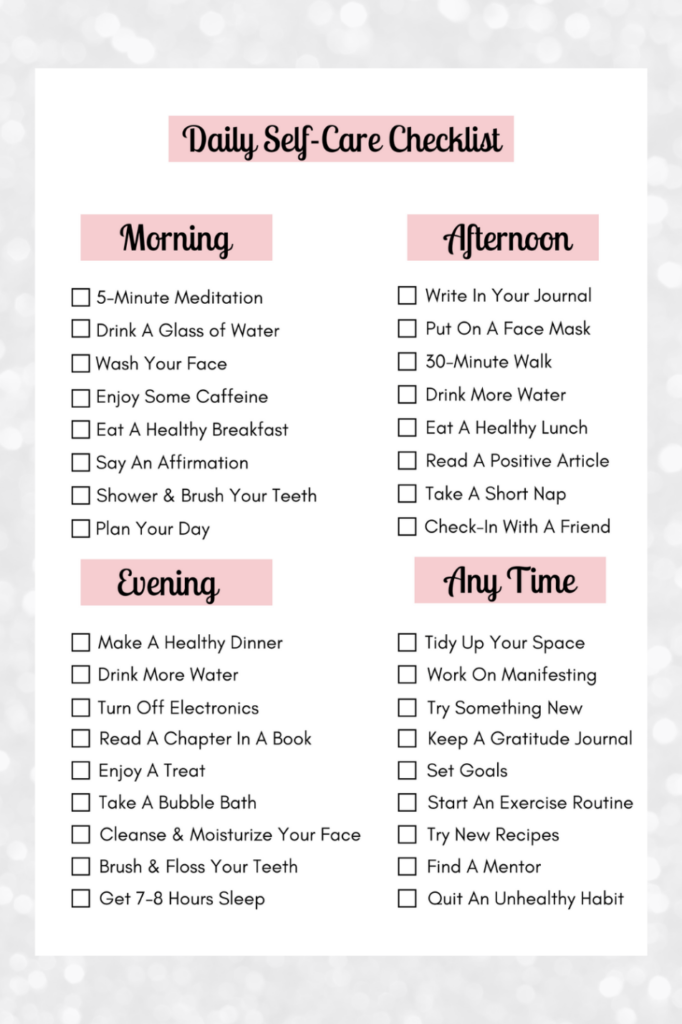Subtotal $0.00
Introduction
In an age of digital overload and chronic stress, the term “self-care” has often been diluted into clichés such as bubble baths, spa retreats, or brief getaways. While these may provide short-term relief, they fall short of addressing the deeper, more transformative aspects of psychological well-being.
From a clinical perspective, self-care is a structured, evidence-based practice rooted in neuroscience and behavioural psychology. It’s a holistic process involving emotional regulation, cognitive recovery, and intentional routines that build long-term resilience. In this article, we’ll explore what meaningful self-care really looks like and how you can implement sustainable strategies for mental wellness.

Redefining Self-Care: A Clinical and Psychological Framework
Emotional Regulation: The Core of Psychological Self-Care
At the foundation of effective self-care lies emotional regulation, the process of recognizing, managing, and responding to emotional experiences in healthy and adaptive ways.
While the mainstream portrayal of self-care emphasizes escape and indulgence, the therapeutic approach encourages the development of coping mechanisms that fortify the mind. Techniques like mindfulness meditation, cognitive restructuring, and emotion-focused therapy have been shown to significantly reduce emotional reactivity and promote emotional stability.
By strengthening emotional awareness and control, individuals can reduce the risk of chronic anxiety, emotional burnout, and depression—conditions that often stem from unmanaged emotional stress.

Cognitive Rest: Recharging the Mind
In our hyper-connected culture, cognitive overload is almost inevitable. We are constantly making decisions, processing information, and multitasking, which can lead to mental fatigue, reduced concentration, and mood instability.
Cognitive rest is the practice of deliberately allowing your mind to recover by disengaging from excessive stimuli. This can include:
- Practicing digital detoxes
- Prioritizing sleep hygiene
- Engaging in low-effort creative activities
- Spending time in quiet, natural environments
Clinical research confirms that cognitive rest improves memory, executive functioning, and emotional regulation, making it a crucial pillar of self-care.
Long-Term Mental Wellness: Sustainable Self-Care Habits
Sustainable self-care is not about isolated activities but rather daily practices that promote long-term mental resilience. These routines help individuals build the internal strength necessary to navigate life’s inevitable challenges.
Key sustainable habits include:
- Regular physical activity
- Adequate and consistent sleep
- Positive self-talk and self-compassion
- Meaningful social interactions
- Ongoing professional mental health support when needed
Therapy, support groups, and coaching provide valuable insights into unresolved psychological concerns and help individuals develop long-lasting coping skills.

A visual routine planner showcasing self-care tasks like therapy sessions, exercise, journaling, and social interaction.
Practical Strategies for Effective Self-Care
- Design a Holistic Self-Care Routine
- Effective self-care is intentional and tailored. It should address your emotional, physical, and cognitive needs. Consider a balanced approach:
- • Morning: Engage in meditation or mindful journaling
- • Afternoon: Take mental breaks, stretch, go for brief walks, and limit non-work screen time
- • Evening: Practice relaxing techniques like yoga, reading, or breathwork
Building a consistent structure creates a mental framework for well-being and reduces decision fatigue.
Invest in Social Support Systems
Humans thrive through connection! Research shows that nurturing strong interpersonal relationships can be a powerful shield against anxiety, depression, and loneliness. Whether it’s bonding with friends, spending time with family, or participating in community groups, these connections provide us with essential emotional support.
Instead of concentrating on the number of relationships we have, let’s focus on genuine communication and shared experiences. It’s the quality of our connections that truly enriches our lives! So, prioritize those heartfelt moments and watch your emotional well-being flourish. Humans thrive on connection! Research shows that nurturing strong interpersonal relationships can be a powerful shield against anxiety, depression, and loneliness. Whether it’s bonding with friends, spending time with family, or participating in community groups, these connections give us vital emotional support.
Instead of focusing on the number of relationships we have, let’s emphasize genuine communication and shared experiences. It’s the quality of our connections that truly enriches our lives! So, prioritize those heartfelt moments and watch your emotional well-being soar.
Master the Art of Boundaries
Healthy boundaries are vital for supporting our well-being. It’s important to recognise when to say no to work tasks, social invitations, or digital disruptions that sap our energy. Being assertive and adopting effective boundary-setting methods can shield us from burnout, allowing us to focus on our mental and emotional health, all without the guilt often associated with taking time for ourselves. Embrace the strength of saying no and see how it can transform your life!
Conclusion
Self-care, when viewed through a clinical perspective, is much more than just pampering or a quick escape. It’s a psychologically grounded practice based on emotional regulation, cognitive rest, and sustainable mental health strategies. With intention and consistency, self-care becomes a powerful tool to boost emotional resilience, prevent mental burnout, and support a balanced, thriving life.
You don’t need to follow complicated routines to support your mental health; what really counts is developing thoughtful, evidence-based habits that suit you. As a psychotherapist, I’ve seen firsthand the powerful impact of genuine self-care. Why not start with just a few small steps? Consistency matters! And remember, if you ever feel overwhelmed, reaching out for professional support can be a vital part of your journey towards wellness. Your mental health deserves the attention and care you give it!
Written by Titilola Omotosho
References
- Gross, J. J. (2002). Emotion Regulation: Affective, Cognitive, and Social Consequences. Psychophysiology, 39(3), 281-291.
- Kabat-Zinn, J. (1990). Full Catastrophe Living: Using the Wisdom of Your Body and Mind to Face Stress, Pain, and Illness. Delta.
- Diener, E., & Ryan, K. (2009). Subjective Well-Being: A General Overview. In Well-Being and Quality of Life. Springer, Dordrecht.



